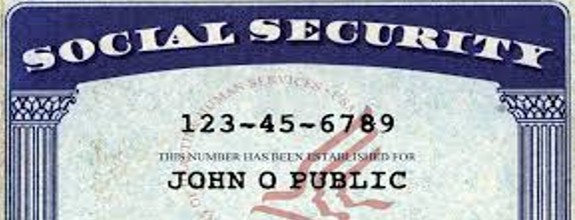Social Security recently celebrated its 85th birthday, but Donald Trump’s payroll tax holiday has the potential to shorten its lifespan, or create a larger burden on workers down the road.
As it stands now, Trump’s action will have limited long-term impact to Social Security, if it is only for the 4 months indicated in his executive order, and workers repay what they took home during the deferment, which they would have to do.
Trump’s order also directs the Treasury Department to look into how the government can forgive the deferred payments. While Trump does not hold the power to forgive payroll taxes, Congress does. However, it is unlikely Congress will forgive these taxes, because doing so would add a significant strain on the solvency of Social Security.
SS payroll taxes are shared by the employer and employee, each paying 6.2% of wages along with a 1.45% tax for Medicare. The executive order signed by Trump allows a delay in taxes to Social Security from September 1 through December 31 for employees making less than $104,000 a year, but still requires employers to pay their portion.
It is currently unclear whether the IRS may calculate interest and penalties for deferred amounts. Without an additional extension or cut, workers would presumably have to reimburse the deferred tax at the start of 2021. Senator Ron Wyden, D-Oregon, ranking member of the Senate Finance Committee, explained how the delay creates a liability for employers and workers.
“While employers are unlikely to risk a massive tax liability by not collecting payroll taxes or having to double up collection later, if they do go along with this stunt, it would drain the Social Security trust fund,” Wyden said. “This fake tax cut would also be a big shock to workers who thought they were getting a tax cut when it was only a delay. These workers would be hit with much bigger payments down the road.”
A move by Congress to forgive these taxes altogether will have put another 6% to 7% of an employee’s wages back into their pocket for four months, potentially leaving room for savings, including retirement savings, but it’s unlikely most will save when past bills are overdue.
As the payroll tax is Social Security’s primary revenue source, a complete forgiveness by Congress could result in damaging effects for current or pre-retirees down the road. According to the Social Security Administration’s own fact sheet, elderly rely on Social Security for at least 50 percent of their income.
There’s already uncertainty about how much longer Social Security will last in its current form. The Social Security Administration estimates the benefit will deplete by 2035, but the Penn Wharton Budget Model, a tool from the University of Pennsylvania that measures the economic impact of national budget policies, claims recent impacts due to COVID-19 will shorten the projected depletion to two to four years earlier.
Prior to running for president, Trump endorsed privatizing Social Security and raising its full retirement age to 70, asking, “How many times will you really want to take that trailer to the Grand Canyon?”
If this tax deferral is more than just a ploy by Trump to get votes in November and he is actually planning on dismantling the Social Security Administration, it is something he could accomplish in a second term.
Unbeknownst to most people, Trump can defer tax payments up to one year, if he declares a national emergency. With no revenue coming in and an average of $1,400/mo being paid out to the tens of millions collecting SS, benefits would end by 2023, if he extended the current 4-month deferral to a full year.
If Trump were to declare another national emergency of some kind in 2022, to follow this one, he could succeed in killing Social Security completely, unless Congress can override him with a two-thirds majority. A vote which is unlikely, considering the number of Republicans in Congress that blindly follow him.
Disclaimer: On January 4, 2016, the owner of WestEastonPA.com began serving on the West Easton Council following an election. Postings and all content found on this website are the opinions of Matthew A. Dees and may not necessarily represent the opinion of the governing body for The Borough of West Easton.





